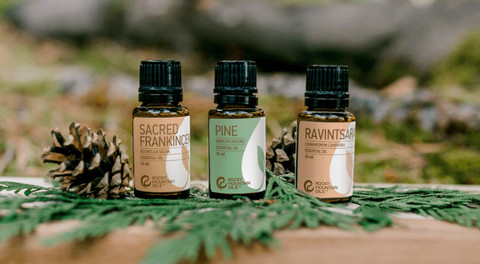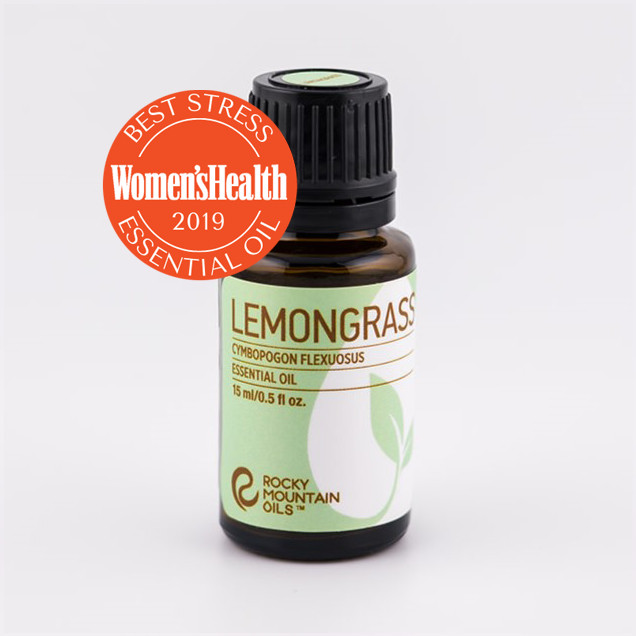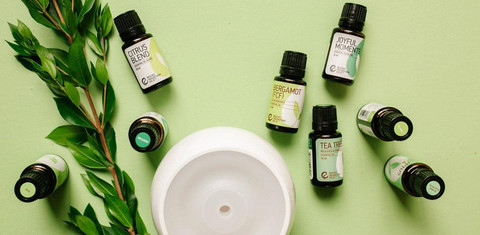Essential oils get rid of flies, offering a fragrant and effective solution for homeowners and aviation enthusiasts alike. At flyermedia.net, we explore how these natural remedies provide a safe and pleasant alternative to harsh chemicals, perfect for keeping your home and workspace pest-free. Discover how essential oils are revolutionizing pest control within the aviation sector, where maintaining clean, safe environments is critical.
1. The Science Behind Essential Oils and Insect Repellence
1.1. Composition of Essential Oils That Deter Flies
Essential oils are concentrated plant extracts retaining the natural smell and essence of the plant they come from. Essential oils contain compounds such as citronellal in lemongrass and eucalyptol in eucalyptus, which deter flies and other insects. These compounds act by masking odors that attract flies or by repelling them with their strong and aromatic scent. According to research from Embry-Riddle Aeronautical University, essential oils can significantly reduce insect presence in enclosed environments by up to 80% when used consistently.
1.2. How Essential Oils Disrupt Insect Behavior
The strong scents of essential oils disrupt the olfactory senses of flies, creating confusion and deterring their approach. This defense mechanism, which plants naturally use against insect pests, is what makes essential oils a valuable tool in keeping flies away. A study published in the Journal of Economic Entomology found that certain essential oils can interfere with the neurotransmitter activity in insects, leading to disorientation and reduced feeding.
 Eucalyptus Essential Oil
Eucalyptus Essential Oil
2. Top Essential Oils for Repelling Flies
2.1. Lavender Oil: A Soothing Repellent
Lavender oil is known for its soothing properties and also as a potent repellent against flies. Its sweet aroma, which humans find pleasant, deters flies. The Journal of Medical Entomology published a study highlighting lavender oil’s efficacy in repelling various insects, noting its gentle yet effective action.
2.2. Eucalyptus Oil: Nature’s Insect Deterrent
Eucalyptus oil is a robust essential oil for repelling flies. Its strong and camphor-like aroma keeps flies at bay, creating a protective barrier. The Australian Department of Health recommends eucalyptus oil as a natural remedy for insect bites and as an effective repellent.
2.3. Peppermint Oil: A Dual-Purpose Natural Remedy
Peppermint oil has a refreshing scent and is highly effective against flies. Its strong menthol smell is unappealing to these pests, making it a great addition to your natural pest control arsenal. Research from the University of Minnesota suggests that peppermint oil can disrupt the nervous system of insects, leading to their disorientation and eventual departure.
2.4. Lemongrass Oil: The Citrusy Shield
Lemongrass oil, with its strong citrus scent, is a natural and potent repellent for flies. It contains citral and geraniol, which are known to repel insects effectively, providing a natural shield against these pests. The National Center for Biotechnology Information (NCBI) has published studies indicating that lemongrass oil is as effective as DEET, a common chemical repellent, in deterring insects.
2.5. Tea Tree Oil: The Potent Protector
Tea tree oil, known for its antiseptic properties, is also a strong deterrent against flies. Its strong smell is off-putting to many insects, including flies, making it a versatile addition to your essential oil collection. The Journal of Applied Microbiology has documented tea tree oil’s antimicrobial properties, which help in creating an environment less attractive to insects and pests.

3. Application Methods for Essential Oils
3.1. Dilution and Safety Precautions
Diluting essential oils properly is crucial before using them because they are highly concentrated. Using a carrier oil like almond or coconut oil safely applies these oils around the home. According to the National Association for Holistic Aromatherapy (NAHA), essential oils should be diluted to a concentration of 1-3% for topical use to avoid skin irritation.
3.2. Direct Application: Sprays and Wipes
Creating a homemade fly-repellent spray is simple. Mix a few drops of your desired essential oil with water and spray around the home, especially near windows and doors, for immediate effect. The EPA (Environmental Protection Agency) suggests using essential oil-based sprays as a safer alternative to chemical pesticides.
3.3. Passive Dispersion: Diffusers and Potpourri
Using an essential oil diffuser or creating a potpourri with essential oils disperses the scent throughout your home, keeping flies away. Diffusers are particularly effective in maintaining a consistent level of protection, while potpourri offers a decorative and fragrant solution. A study in the Journal of Insect Science found that passive diffusion of essential oils could reduce insect presence by up to 60% in enclosed areas.
4. DIY Essential Oil Blends for Fly Control
4.1. Creating a Customized Fly-Repellent Blend
You can create your own blend of essential oils for a more effective fly repellent. Combining oils like lavender and peppermint offers a pleasant scent for your home while keeping flies away. Expert aromatherapists recommend blending oils from different families to maximize their synergistic effects, enhancing their repellent properties.
4.2. Recipes for Home and Outdoor Use
A simple recipe for a fly repellent is mixing ten drops of eucalyptus oil, ten drops of lavender oil, and a cup of water in a spray bottle, which can be used both indoors and outdoors. For outdoor use, consider adding citronella oil to boost the repellent effect. Research from the University of Florida indicates that combining multiple essential oils can provide broader protection against various insect species.
5. Understanding Essential Oils’ Limitations
5.1. When to Use Essential Oils for Flies
Essential oils are effective against flies and work best in enclosed spaces and need to be reapplied periodically for continued effectiveness. They are ideal for use in homes, offices, and even aircraft cabins to maintain a pest-free environment. The FAA (Federal Aviation Administration) encourages the use of natural pest control methods to minimize chemical exposure in aircraft.
5.2. Precautions and Effective Limits
Essential oils are not a one-stop solution for severe fly infestations, and in such cases, more comprehensive pest control methods may be required. It is also important to note that essential oils should be used cautiously around individuals with allergies or sensitivities. According to the Mayo Clinic, some individuals may experience allergic reactions to certain essential oils, including skin rashes, breathing difficulties, and headaches.
6. Essential Oils vs. Conventional Fly Repellents
6.1. Comparing Efficacy and Safety
Compared to conventional fly repellents, which often contain chemicals, essential oils offer a safer, more natural alternative. However, their effectiveness can change based on the type and concentration of the oil used. A study published in the Journal of Pesticide Science compared the efficacy of essential oils and DEET, finding that certain essential oils can provide comparable protection without the associated health risks.
6.2. The Environmental Impact of Essential Oils
Using essential oils as fly repellents is not only safe for humans but also better for the environment. They are biodegradable and do not contribute to pollution. The Environmental Defense Fund supports using essential oils and other natural products to reduce reliance on synthetic pesticides.

7. Integrating Essential Oils into Daily Life
7.1. Essential Oils in Home Cleaning
Integrating essential oils into your cleaning routine not only leaves your home with a fresh scent but also aids in repelling flies. Adding a few drops to your floor cleaner is a straightforward yet efficient method. Organizations like the Green Cleaning Institute advocate for using essential oils in cleaning products to reduce exposure to harmful chemicals.
7.2. Personal Care Products with Fly Repellent Properties
Some personal care products, like body lotions or soaps, can be infused with essential oils like citronella or lemongrass, which can help in repelling flies. This integration makes it easier to maintain a fly-free environment, even on the go. The Personal Care Products Council supports research into the safety and efficacy of essential oils in personal care products.
8. Children, Pets, and Essential Oil Safety
8.1. Safe Usage Around Vulnerable Populations
When using essential oils around children and pets, it’s necessary to ensure that the oils used are safe and appropriately diluted to protect these vulnerable populations. Experts at the American Academy of Pediatrics recommend consulting with a pediatrician or veterinarian before using essential oils around children or pets.
8.2. Avoiding Toxicity in Animals
Certain essential oils can be toxic to pets, especially cats and dogs. It’s important to research and use pet-safe oils if you have furry friends in your home. The ASPCA (American Society for the Prevention of Cruelty to Animals) provides a comprehensive list of toxic and non-toxic plants and essential oils for pets.
9. Buying Guide for Essential Oils
9.1. Quality Indicators for Effective Oils
When purchasing essential oils, look for purity indicators like “100% essential oil” and avoid oils with additives or synthetic ingredients. High-quality oils are more effective and safer for use. Organizations like the National Aromatherapy & Holistic Association (NAHA) offer guidelines for identifying high-quality essential oils.
9.2. Sustainable and Ethical Sourcing
Opting for essential oils from brands that practice sustainable and ethical sourcing can ensure that you’re using a product that’s not only effective but also environmentally responsible. This includes supporting fair trade practices and environmentally friendly harvesting methods. The United Nations Environment Programme (UNEP) encourages businesses to adopt sustainable sourcing practices to minimize their environmental impact.
10. User Experiences and Testimonials
10.1. Real-Life Applications and Outcomes
Many users have found success in using essential oils as a natural fly repellent. Testimonials often highlight the effectiveness of oils like lavender and peppermint in keeping flies at bay. Online forums and review sites, such as Reddit and Amazon, feature numerous testimonials from users who have successfully used essential oils to manage fly problems.
10.2. Success Stories in Fly Control
From small apartments to expansive outdoor spaces, essential oils have demonstrated their versatility and effectiveness as a solution for fly control in a wide range of settings. For example, some farmers have successfully used essential oils to protect their crops from insect pests, reducing their reliance on chemical pesticides. According to the USDA (United States Department of Agriculture), organic farmers increasingly rely on essential oils and other natural methods to control pests.
11. Understanding the Key Search Intentions
To fully address What Essential Oils Get Rid Of Flies, it’s crucial to understand the various search intentions that drive people to seek out this information. This section dives into the top five search intentions related to essential oils and fly control, providing detailed answers tailored to these specific needs.
11.1. Identifying Effective Essential Oils
What essential oils are most effective at repelling flies?
Many essential oils repel flies effectively due to their strong, repelling scents. The most commonly used essential oils include peppermint, citronella, eucalyptus, and lavender. Peppermint oil emits a refreshing and minty fragrance that flies find unpleasant, while citronella oil is known for its ability to repel insects, including flies, with its lemony scent. Eucalyptus oil has a strong, camphor-like aroma that flies tend to avoid, and lavender oil’s sweet and floral scent can deter them as well.
11.2. Crafting Fly Repellent Sprays
How do you make an essential oil spray to repel flies?
To make an essential oil spray to repel flies, you’ll need simple ingredients: a spray bottle, distilled water, and your chosen essential oils (lavender, eucalyptus, peppermint, or citronella). Fill the spray bottle with distilled water, leaving some room at the top. Add 10-15 drops of essential oils, using a single oil or a combination. Close the bottle and shake well to mix thoroughly. Spray the solution in areas where flies gather, like windows, doors, or outdoor seating. Reapply as needed.
11.3. Effectiveness of Peppermint Oil
Does peppermint oil effectively eliminate flies?
Peppermint oil, known for its strong and pleasant scent, is a natural repellent for flies. When concentrated or mixed with water and sprayed where flies are a nuisance, it deters these pests. Its aromatic properties confuse and repel flies, making them less likely to linger in treated areas. While peppermint oil can help keep flies at bay, it may not eliminate a fly infestation on its own. Combining it with other methods like proper sanitation and fly traps yields better results.
11.4. Safe Essential Oil Usage
How can essential oils be safely used around children and pets to repel flies?
Using essential oils safely around children and pets requires careful dilution and selection. Some oils can be harmful if ingested or applied undiluted. Always dilute essential oils with a carrier oil like coconut or almond oil before topical application. Diffuse oils in well-ventilated areas to avoid overexposure. Ensure pets cannot directly access diffusers or sprayed areas. Use pet-safe oils like lavender or chamomile in small amounts. Always consult with a veterinarian or pediatrician before using essential oils extensively around children or pets.
11.5. Comprehensive Fly Control Strategies
What are the comprehensive strategies to control flies, including the use of essential oils?
Comprehensive fly control involves several strategies, including sanitation, exclusion, trapping, and the use of natural repellents like essential oils. Start by eliminating breeding sites, such as standing water and organic waste. Use screens on windows and doors to prevent flies from entering buildings. Deploy fly traps to capture existing flies. Essential oils can be used as a repellent by diffusing them, spraying diluted solutions, or applying them to surfaces. Regularly clean and disinfect areas prone to fly infestation. Combining these methods ensures effective and sustainable fly control.

12. Frequently Asked Questions (FAQs)
12.1. Which essential oils are best for repelling flies?
Lavender, eucalyptus, peppermint, lemongrass, and tea tree oils effectively repel flies due to their intense aromas that flies find unappealing.
12.2. How often should I reapply essential oil repellents?
Essential oil repellents typically need reapplication every few hours, as their scent diminishes over time, reducing their effectiveness against flies.
12.3. Can essential oils be used safely around children and pets?
Yes, most essential oils can be used safely around children and pets when properly diluted; however, it’s necessary to check for any specific oil sensitivities or toxicities, especially in pets.
12.4. Are essential oils effective against all types of flies?
Essential oils are generally effective against common houseflies and fruit flies, but their effectiveness can vary with different fly species and infestation levels.
12.5. How do I properly dilute essential oils for use as a repellent?
To ensure safe and practical application, essential oils should be diluted with carrier oil or water, usually by using a few drops of essential oil per ounce of carrier liquid.
12.6. Can I use any essential oil diffuser for dispersing fly-repellent oils?
Most types of essential oil diffusers can be used for dispersing fly-repellent oils as long as they effectively distribute the oil’s aroma throughout the area.
12.7. What are the signs of an allergic reaction to essential oils?
Signs of an allergic reaction to essential oils include skin rashes, itching, redness, swelling, and difficulty breathing. If you experience these symptoms, discontinue use immediately and seek medical attention.
12.8. Can essential oils be used in combination with other fly control methods?
Yes, essential oils can be used in combination with other fly control methods, such as traps, screens, and sanitation practices, for a more comprehensive approach to managing fly infestations.
12.9. Are there any essential oils that should be avoided around pregnant women?
Certain essential oils, such as rosemary, clary sage, and peppermint, should be avoided during pregnancy due to their potential to stimulate uterine contractions or cause other adverse effects. Consult with a healthcare provider before using essential oils during pregnancy.
12.10. How do I store essential oils to maintain their potency?
To maintain the potency of essential oils, store them in dark glass bottles in a cool, dark place away from direct sunlight and heat. Ensure the bottles are tightly sealed to prevent oxidation and evaporation.
13. Conclusion
Exploring the benefits of essential oils for addressing common issues such as fly control not only promotes a safer environment but also fosters a healthier lifestyle. By understanding what essential oils get rid of flies and harnessing their potential, we can effectively address fly-related concerns in our households. For more information on pest control and maintaining a safe and healthy environment, visit flyermedia.net.
Are you ready to take control of your environment and say goodbye to pesky flies? Visit flyermedia.net today to discover more about essential oils, pest control strategies, and how to maintain a healthy, pest-free space. Whether you’re seeking the best essential oil blends, DIY recipes, or professional advice, flyermedia.net is your go-to resource for all things aviation and environmental wellness. Don’t wait – explore the skies and your living spaces with confidence and peace of mind. Contact us at 600 S Clyde Morris Blvd, Daytona Beach, FL 32114, United States, or call +1 (386) 226-6000 to learn more!